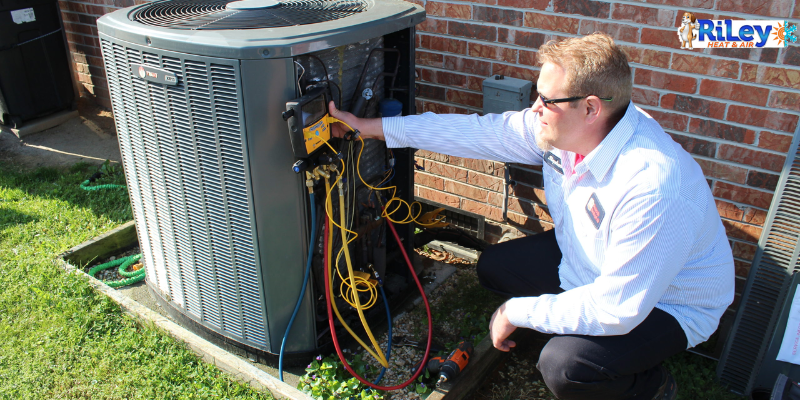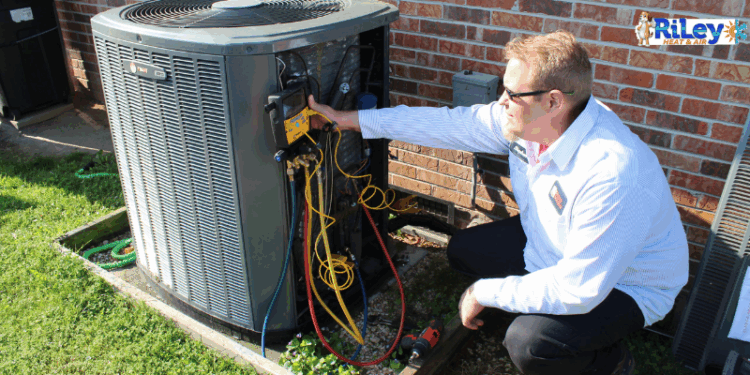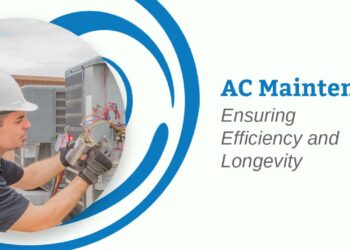
Delve into the world of central AC maintenance with this comprehensive guide, exploring the key aspects of keeping your system running smoothly and efficiently. From the importance of regular maintenance to the common tasks involved, this article will equip you with the knowledge needed to ensure your unit's longevity and optimal performance.
Importance of Central AC Maintenance
Regular maintenance of central AC systems is crucial to ensure optimal performance and efficiency. By scheduling routine maintenance, you can prevent potential issues and prolong the lifespan of your unit.
Improving Efficiency
Proper maintenance, such as cleaning or replacing air filters, can help your central AC system operate more efficiently. A clean system does not have to work as hard to cool your home, leading to lower energy consumption and reduced utility bills.
Prolonging Lifespan
Regular maintenance can also extend the lifespan of your central AC unit. By addressing minor issues before they escalate into major problems, you can avoid costly repairs or premature system replacements. Taking care of your AC system can save you money in the long run.
Potential Consequences of Neglect
Neglecting maintenance tasks for your central AC system can result in various consequences. Accumulated dirt and debris can restrict airflow, leading to poor cooling performance. Additionally, neglected maintenance may cause components to wear out faster, resulting in more frequent breakdowns and repairs.
Ultimately, neglecting maintenance can shorten the lifespan of your central AC unit and reduce its overall efficiency.
Common Maintenance Tasks
Regular maintenance is crucial for the proper functioning and longevity of your central AC system. By performing essential maintenance tasks, you can ensure that your system runs efficiently and effectively, saving you money on energy bills and preventing costly repairs.
Cleaning Filters, Coils, and Ducts
- Filters: Clean or replace filters every 1-3 months to maintain good air quality and airflow.
- Coils: Regularly clean the evaporator and condenser coils to improve efficiency and prevent breakdowns.
- Ducts: Inspect and clean ductwork to remove dust, debris, and mold, ensuring proper airflow throughout your home.
Checking and Refilling Refrigerant Levels
- Refrigerant: Check refrigerant levels annually to prevent system damage and ensure optimal cooling capacity.
- Refilling: If refrigerant levels are low, contact a professional to refill and seal any leaks to maintain system efficiency.
Inspecting and Calibrating Thermostats
- Thermostats: Regularly check and calibrate thermostats to ensure accurate temperature control and prevent overheating or overcooling.
- Calibration: If your thermostat is not functioning correctly, consider replacing it to maintain proper climate control.
Maintenance Schedule
Regular maintenance is key to keeping your central AC unit running smoothly and efficiently. Here is a suggested maintenance schedule to follow to ensure your system remains in top condition.
Monthly
- Check and replace air filters if dirty or clogged.
- Inspect the thermostat settings and ensure they are accurate.
Quarterly
- Inspect and clean the evaporator and condenser coils.
- Check the refrigerant levels and top up if necessary.
- Inspect the ductwork for leaks and seal any gaps.
Annually
- Schedule a professional HVAC technician to perform a thorough inspection and tune-up.
- Check the fan belts for wear and tear and replace if needed.
- Lubricate moving parts to reduce friction and wear.
Creating a maintenance checklist can help you stay organized and keep track of when each task needs to be done. Include all the tasks mentioned above and set reminders to ensure you don't miss any important maintenance steps
.
DIY vs. Professional Maintenance
When it comes to central AC maintenance, homeowners often debate whether to tackle the tasks themselves or hire a professional service. Both options have their benefits and drawbacks, so it's essential to understand when it's appropriate to handle maintenance independently and when to seek professional help.
Let's explore the comparison between DIY maintenance and professional maintenance, along with the cost implications of DIY mistakes.
Benefits and Drawbacks of DIY Maintenance
- Benefits of DIY Maintenance:
- Cost-effective as you can save on labor costs.
- You have control over the maintenance schedule and can address issues promptly.
- You can develop a better understanding of your AC system by handling maintenance tasks yourself.
- Drawbacks of DIY Maintenance:
- Risk of incorrect maintenance leading to further damage to the system.
- Lack of specialized knowledge and tools that professionals possess.
- No warranty or guarantee on the work done, unlike professional services.
When to Handle Maintenance Tasks Independently and When to Seek Professional Help
- DIY Maintenance:
- Changing air filters, cleaning vents, and checking thermostat settings are tasks suitable for DIY.
- Regular inspections and basic cleaning can be done independently to maintain system efficiency.
- Professional Maintenance:
- Complex repairs, refrigerant refills, and electrical work should be left to professionals to avoid safety risks.
- An annual professional tune-up ensures thorough inspection and maintenance for optimal performance.
Cost Implications of DIY Maintenance Mistakes
- DIY mistakes can lead to costly repairs or even premature system failure.
- Incorrect handling of components can void warranties and result in out-of-pocket expenses.
- Professional repairs to fix DIY errors may end up costing more than hiring a professional from the start.
Signs of AC Maintenance Issues
When it comes to your central AC unit, it's essential to be aware of signs that indicate maintenance issues may be present. Ignoring these signs can lead to more significant problems down the line, so it's crucial to address them promptly.
Here are some common indicators that suggest your AC unit requires maintenance:
Strange Noises
If you start hearing unusual sounds coming from your AC unit, such as grinding, squealing, or banging noises, it could be a sign of a mechanical issue. These noises may indicate worn-out or loose components that need attention. It's best to troubleshoot these noises early on to prevent further damage.
Reduced Airflow
Another red flag to watch out for is reduced airflow from your vents. If you notice that certain rooms in your home are not getting as much cool air as they used to, there could be a blockage or a problem with the ductwork.
Checking and cleaning air filters regularly can help maintain proper airflow and prevent any potential issues.
When to Call a Professional
While you can troubleshoot minor AC issues on your own, there are times when it's best to call a professional for assistance. If you encounter any of the following situations, it's advisable to seek help from an HVAC technician:
- The AC unit is not cooling the space effectively.
- There is a refrigerant leak.
- The AC unit is constantly cycling on and off.
- The thermostat is not functioning correctly.
- There is a strange odor coming from the vents.
Remember, regular maintenance and addressing issues promptly can help extend the lifespan of your central AC unit and ensure it operates efficiently.
Epilogue
In conclusion, central AC maintenance is crucial for the well-being of your system. By following a regular maintenance schedule and knowing when to seek professional help, you can avoid costly repairs and enjoy a cool, comfortable environment year-round. Stay proactive and keep your central AC in top shape for years to come.
Questions Often Asked
What are the benefits of regular central AC maintenance?
Regular maintenance improves efficiency, prolongs the lifespan of the unit, and helps avoid costly repairs.
How often should central AC units be maintained?
It is recommended to perform maintenance tasks monthly, quarterly, and annually to ensure optimal performance.
Can I perform maintenance tasks on my central AC system myself?
While some tasks can be done DIY, it's important to know when to seek professional help to prevent mistakes and costly repairs.
What are the signs that indicate my AC unit needs maintenance?
Strange noises, reduced airflow, and inconsistent cooling are common indicators that maintenance is required.
 Delve into the world of central AC maintenance with this comprehensive guide, exploring the key aspects of keeping your system running smoothly and efficiently. From the importance of regular maintenance to the common tasks involved, this article will equip you with the knowledge needed to ensure your unit's longevity and optimal performance.
Delve into the world of central AC maintenance with this comprehensive guide, exploring the key aspects of keeping your system running smoothly and efficiently. From the importance of regular maintenance to the common tasks involved, this article will equip you with the knowledge needed to ensure your unit's longevity and optimal performance.












